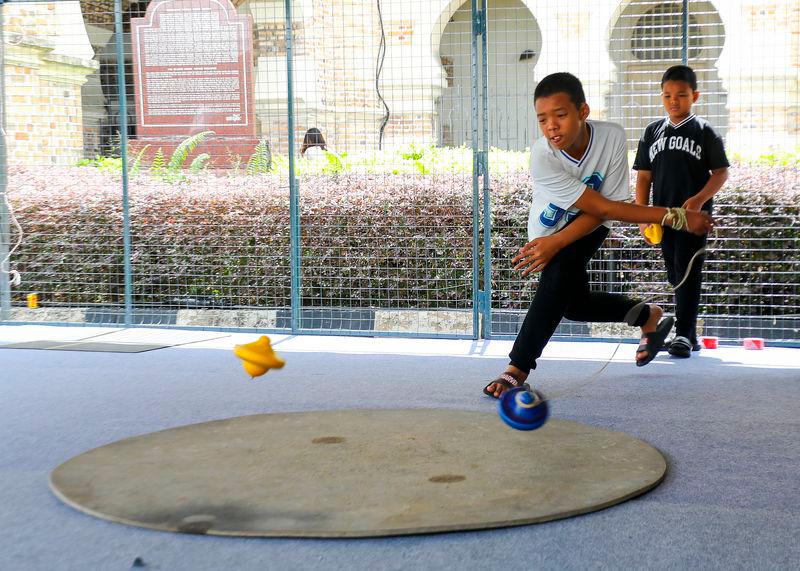PETALING JAYA: The government and tourism authorities have been urged to incorporate traditional games into school curricula to preserve Malaysia’s rich cultural heritage and foster pride and appreciation for them.
Bukit Kapar Traditional Pangkah Toping Association deputy chairman Mohd Aziz Samsudin, 63, said Malaysians of all ages should play traditional games and participate in tournaments to keep the cultural heritage alive and pass down traditions from one generation to the next.
He said the government should introduce traditional games to the younger generation starting from primary school, as early exposure helps children learn about and appreciate their cultural heritage.
Mohd Aziz said traditional games can enhance relationships between family members and friends by fostering communication and collaboration.
“In the 1990s, traditional games such as congkak, batu seremban, wau bulan, galah panjang, and gasing pangkah were introduced in schools, but in time the move died off.
“In my village, there are younger people who are still actively playing traditional games, but I notice they are not well known among urban children who are more attached to video games and their smartphones.”
He said such initiatives could promote physical fitness, foster social interactions, and ensure the survival of these unique games for years to come.
Maintenance worker Mohd Shafie Kalil, 38, who has been actively playing gasing pangkah since he was 15, said he encourages the younger generation to participate because such games teach valuable life skills such as strategy, patience, and resilience.
He was one of the participants of a recent gasing pangkah tournament at Dataran Merdeka, organised by the National Department for Culture and Arts, Kuala Lumpur City Hall, and traditional games associations.
“Many traditional games are played outdoors and made from wood.
“For example, gasing pangkah is made from hardwood such as kuran, kempas, keranji and tualang.
“Quality gasing or top is made of hard and malleable wood. Any slight imperfections, such as holes or cracks will affect its balance.”
Mohd Shafie also said he loves playing traditional games because they often have rules that can be adapted or expanded upon, to allow for creative play and problem solving.
“Playing traditional games is not that expensive like modern ones.
The cost for a gasing pangkah is normally less than RM80. The wooden top normally costs RM50 while the rope is around RM30.”
He said traditional games can create a sense of belonging and community, often involving shared experiences with team and group participation.
Mohd Shafie, who participated in the adult category, said he would teach his children how to play gasing pangkah and encourages them to participate in national tournaments.
“Parents used to scold their children when they come back home in the late evening. However today, children are urged to play outside to detach themselves from their smartphones and video games.
He called on youths to learn traditional games, including gasing pangkah, because they can take over the veteran players when they are gone.









